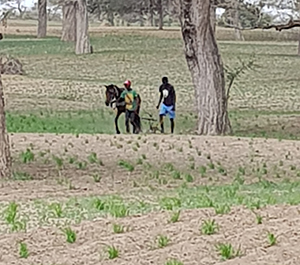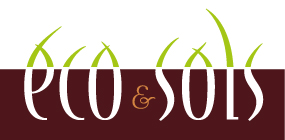 Roles of agroforestry in sustainable intensification of small farms and food security for socIeties in West Africa.
Roles of agroforestry in sustainable intensification of small farms and food security for socIeties in West Africa.
Site web du projet : https://josianeseghieri.wixsite.com/ramsesii
Millennia of agroforestry practices in West Africa are currently facing multiple threats, testing the ability of agroforestry systems to meet current needs for increased food production to feed a growing population. vulnerable. The question asked by this project is the following: "How can agroforestry be intensified sustainably ?"
Agroforestry offers local agronomic, environmental, economic and social benefits that can contribute to improving food, nutrition and economic security. It is an interesting starting point to explore for the design of sustainable and resilient agricultural systems in the face of global change.
The approach is based on a multi-scale diagnosis of the key factors of park dynamics and the characterization of the multiple services they provide. In order to maximize adoption, the most advantageous intensification scenarios are co-designed by scientists and stakeholders using participatory modeling developed in the context of multi-stakeholder innovation platforms:
- at the farm level, a bioeconomic model simulates management scenarios proposed by farmers, providing them with the potential impacts on farm income and agronomic and environmental performance to help them select the best management scenarios. more adapted to their current priorities.
- at the village territorial level, all stakeholders, including authorities (state and customary) and social actors (including women, youth, migrants), will co-build realistic governance that can support the chosen scenarios while including gender, youth, and migrant's equal empowerments.
Objectives
To provide innovative intensification scenarios for the four most-represented cereal crop agroforestry parks in West Africa (mainly Vitellaria paradoxa - shea - , Faidherbia albida, Guiera senegalensis, Piliostigma parklands), while maximizing their adoption by smallholders.
Expected results
- Parkland dynamic drivers at landscape, village territory, and farm scales;
- Characterisation and quantification of the socio-ecosystem services provided by the current parklands;
- Intensification scenarios co-built with scientist and stakeholders (farmers, villagers, territorial authorities, social cadet (women, young people, migrants, etc.) ;
- Strategy of scaling scenario facilitation and its indicators.
Dates
2018 - 2021
Partners
6 Research institutes & 3 NGOs
- IRD: UMR Eco&Sols (France & Sénégal), UMR GRED (France & Burkina Faso), UMR Espace-Dev (France), UMI Résiliences (France)
- Cirad : UMR Eco&Sols (France & Sénégal), UPR Aïda (France, Burkina Faso, Senegal)
- Institut de l’Environnement et des Recherches Agricoles (INERA) Burkina Faso ;
- West African Science Service Centre on Climate Change and Adapted Land Use (WASCAL) Burkina Faso ;
- Institut Sénégalais de Recherches Agricole (ISRA) Senegal ;
- Wageningen University and Research (WUR) The Netherlands.
- Association pour la promotion des arbres fertilitaires, de l'agroforesterie et la foresterie (APAF France, Senegal, Burkina faso) <https://ong-apaf.org> ;
- Birdlife-International (The Netherlands, Bukrina Faso, Senegal) <http://www.birdlife.org>
- Global Shea Alliance (GSA Ghana) <https://globalshea.com>
Funding
-
Eranet cofund project Leap-Agri <https://www.leap-agri.com> :
5 funders : ANR, AFD, NWO, FIRST, FONRID
Contact and Informations
Josiane Seghieri, UMR Eco&Sols, IRD Montpellier
email :






